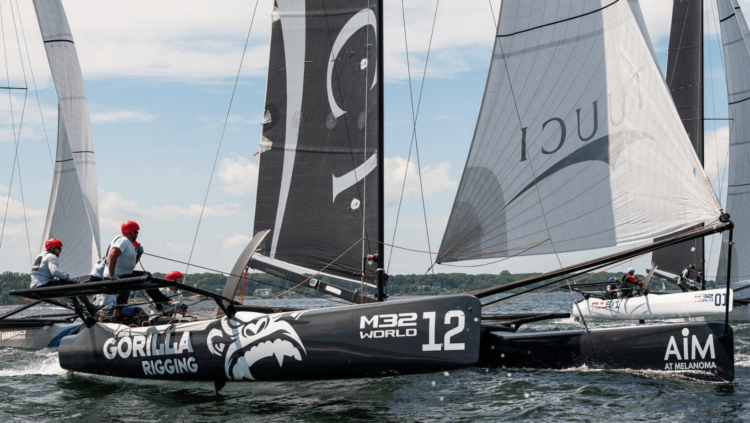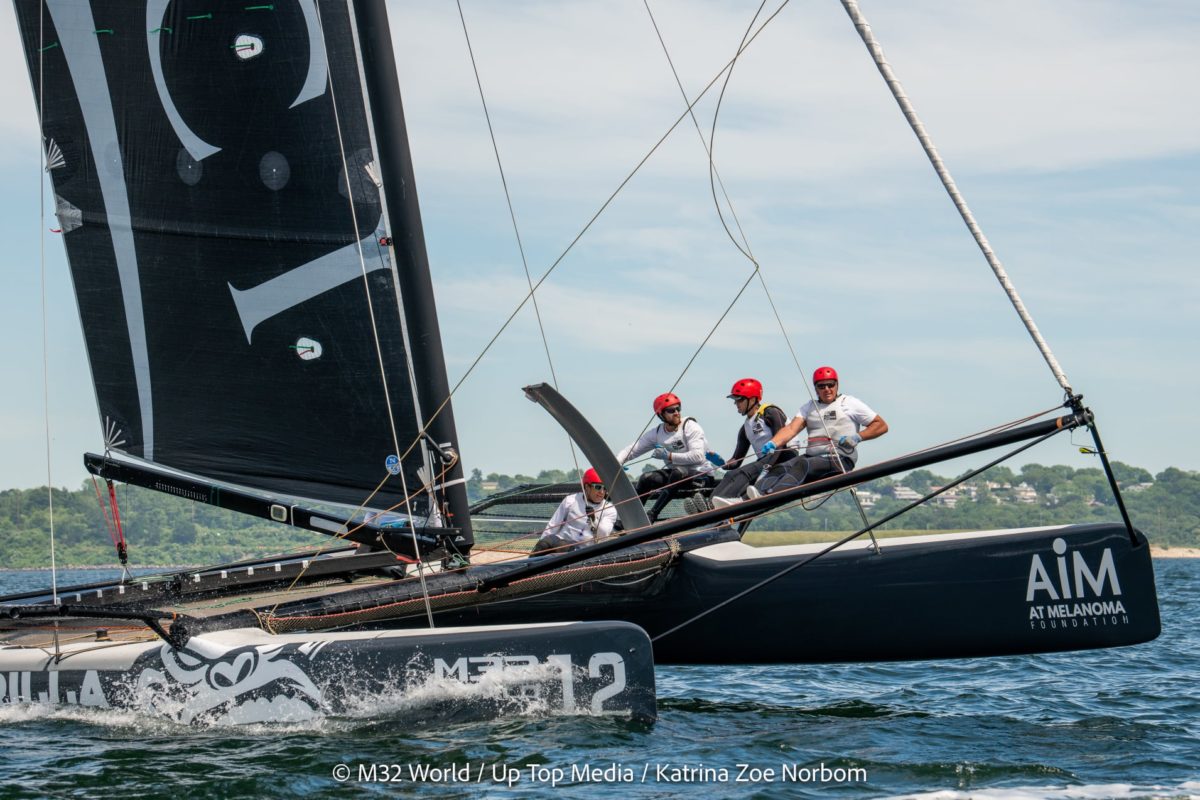Chad Freitas and the Skiff Sailing Foundation

By Alicia Rowell, Vice President
It was 1986. Chad Freitas was six years old, and he and his dad drove from the Bay Area of California to Vancouver, Canada in an old VW to see Expo86, the World’s Fair. Featuring exhibits from all around the world, the 1986 expo presented the theme of transportation.
Young Chad was struck by Australia’s exhibits: They brought their America’s Cup boat and an 18 foot Skiff, which is a flat-bottomed boat that plains across the water and is made for speed. These were the most spectacular boats he’d seen up close, and he marveled at them.
Back in the Bay Area, at age eleven Chad began to sail out of a junior sailing program at a yacht club in Alameda, CA.
“Junior sailing programs are common all over the country,” he says. “Wherever there is water there are programs.” These programs teach you how to sail and then push you into racing, because “that’s how you get good.”
By the time he hit high school, he was obsessed. He learned that costs in the sport were high, but assistance was available.
“Most sailing programs and yacht clubs have associated non-profits that help kids sail,” he says. These organizations provide opportunities for younger sailors to travel and compete.
He attended UC Berkeley (“Cal”) and sailed for their team. “There are about 200 colleges that sail,” Chad explains, “organized under a group called the Inter-Collegiate Sailing Association (ICSA).” ICSA is the governing authority for sailing competition at colleges and universities throughout the United States and in some parts of Canada.
Since he graduated from Cal 20 years ago—besides sailing himself—he has headed The Skiff Sailing Foundation, the mission of which is to provide equipment to racing sailors. The foundation is funded entirely by contributions from people in the sailing world. Sailing programs and nonprofits play a huge role in training our Olympic athletes, America’s Cup racers, and World Champions.
“There are so many sports and other activities that can take young people away from sailing,” he says. “Our goal is to keep them sailing and racing on good equipment.” There’s a common goal in the sailing community to produce good sailors.
And the sport is evolving, primarily because of materials. Lightweight carbon fiber hydrofoils have dramatically increased the speed of boats, whether they’re catamarans (double-hulled) or monohulls (single). With the new materials, strength in sailors is less important, and finesse more important.
“What’s interesting about skiff sailing and performance sailing, in general, is that the new materials have leveled the playing field,” he says. “It’s exceptionally good for women.” To be a good sailor now, “you have to be smart, not strong.”
Indeed, the Skiff Sailing Foundation sponsored and sent an all-women’s boat to a race in Australia, which prompted the Australians to field an all-women’s team as well. “We want to find women sailors who are really good—and keep them sailing,” he says.
In the Australian skiff leagues, every sail is adorned with a company logo. Down Under, the sport has always recognized the value of its surfaces to the audiences that watch and the participants who sail.
Corporate sailing sponsorship is less common in America. Without sailing leagues, our athletes are on their own to engage in this type of fundraising.

But Chad sees no reason to leave the sails empty. Chad selected AIM to appear on several boats in the Skiff Sailing Foundation fleet, recognizing the value of this exposure to a non-profit like ours.
“For athletes, attaining sponsorship can be a chicken and egg problem. I am hoping that our sailors will take the opportunity to build a media portfolio with AIM at Melanoma. For many, this will be their first experience displaying signage and providing media reports. This will help them grow as professional athletes should they choose this path.”
AIM is a relevant and consistent charity that fits with the needs of sailors and the sailing community. All sailors and regatta audiences spend their days in the sun and on the highly reflective water. Partnering with AIM serves to educate the sailing community on prevention and early detection as part of the relationship.
Thank you, Chad, for choosing AIM!
Recent Posts

In Plain English: Update on Melanoma Vaccines, 2024

Options For Stage II Melanoma: Making the Decision that’s Right For You

Coolibar’s Generous Donation to the AIM at Melanoma Foundation

Fall 2024 Newsletter


